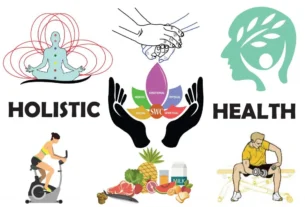In the ever-evolving landscape of health and wellness, nutrition and diet are at the forefront of the conversation. Increasingly, individuals are recognizing that one-size-fits-all dietary recommendations may not be the most effective approach to achieving optimal health. This realization is driving a shift towards personalized nutrition, where diets are tailored to an individual’s unique genetic makeup, lifestyle, and health needs.
One of the most significant advancements in personalized nutrition is the use of genetic testing. Companies offering DNA-based dietary advice are becoming more popular, promising insights into how one’s genetic predispositions can influence their nutritional needs. By analyzing specific genes related to metabolism, nutrient absorption, and food intolerances, these tests aim to provide personalized dietary recommendations that can help individuals optimize their health.
Another key development in the field is the growing understanding of the gut microbiome’s role in health. Research has shown that the composition of gut bacteria can significantly impact digestion, immunity, and even mental health. Personalized nutrition plans are increasingly considering the gut microbiome, with recommendations for probiotics and prebiotics tailored to support a healthy balance of gut bacteria.
Technology is also playing a crucial role in the personalization of nutrition. Mobile apps and wearable devices are now capable of tracking dietary intake, physical activity, and health metrics in real-time. These tools offer personalized feedback and meal suggestions based on the data they collect, helping users make more informed dietary choices. Additionally, AI-powered platforms are being developed to analyze dietary patterns and provide customized nutrition plans.
The trend towards plant-based diets continues to gain momentum, driven by both health and environmental concerns. Many people are adopting vegetarian or vegan diets, or simply incorporating more plant-based foods into their meals. This shift is supported by research indicating that plant-based diets can lower the risk of chronic diseases such as heart disease, diabetes, and certain cancers. Moreover, the environmental benefits of reducing meat consumption are resonating with a growing number of consumers.
Functional foods, which provide health benefits beyond basic nutrition, are also becoming a staple in personalized diets. Foods fortified with vitamins, minerals, and other beneficial compounds are being used to address specific health concerns, from boosting immunity to improving cognitive function. This trend is evident in the rising popularity of superfoods like chia seeds, turmeric, and spirulina, which are lauded for their nutrient density and health-promoting properties.
The focus on holistic health is influencing dietary choices as well. People are increasingly aware of the connection between diet and mental health, leading to a greater emphasis on foods that support brain health and emotional well-being. Omega-3 fatty acids, antioxidants, and other nutrients known for their cognitive benefits are becoming essential components of modern diets.
Public health initiatives are also contributing to the shift towards healthier eating habits. Governments and health organizations are promoting dietary guidelines that emphasize whole foods, balanced meals, and reduced intake of processed foods and sugars. Educational campaigns and community programs are being implemented to help people make healthier food choices and understand the importance of nutrition for overall health.
As the field of nutrition and diet continues to advance, the move towards personalization and holistic health is expected to grow. By embracing tailored dietary recommendations and focusing on the interconnectedness of diet and overall well-being, individuals can achieve better health outcomes and a higher quality of life. The future of nutrition is personal, informed, and integrally connected to the broader concept of health and wellness.



